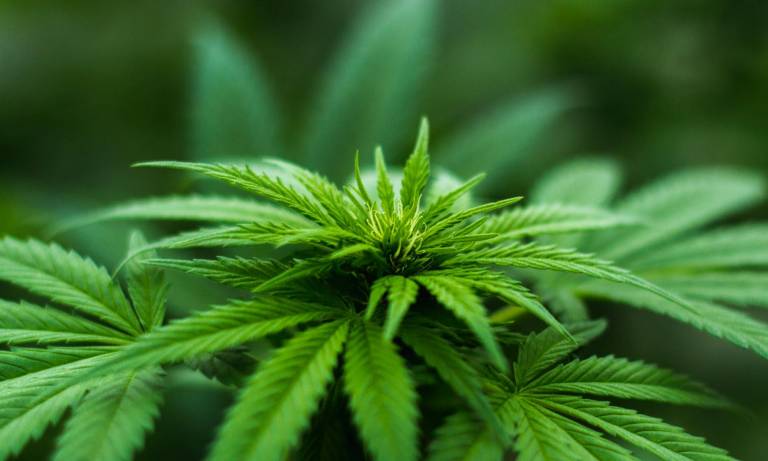Cannabis component could treat nicotine addiction
23 May 2018
A non-intoxicating component of cannabis, cannabidiol (CBD), may be useful as a drug to help people quit smoking cigarettes, according to a new study led by Chandni Hindocha (UCL Clinical Psychopharmacology Unit).

The study found that after a single dose of CBD treatment, heavy daily smokers find smoking-related cues less visually attention-grabbing. As visual cues - such as seeing friends smoking - often trigger relapses in those who have quit, CBD could help people stop smoking.
For the study, 30 dependent cigarette smokers came into the lab after smoking normally or abstaining for 12 hours from smoking, and were given pills of either CBD or a placebo, on separate occasions.
The participants who received CBD showed less attentional bias to tobacco-related stimuli than in the placebo condition (to the point that their attentional bias was no greater than when satiated with nicotine when they smoked normally), and also rated smoking-related images as less pleasant.
Prior research has found that attentional bias is common in many addictive disorders, is heightened during abstinence, can predict short-term relapse, and may play a causal role in maintaining addiction.
Researchers believe that attentional bias occurs because of changes in the reward pathway of the brain caused by years of smoking, the participants' attention was drawn to drug-related images.
While craving and withdrawal symptoms were unaffected, the researchers say they will follow up with clinical trials using longer-term treatment with multiple doses, to see if craving and withdrawal symptoms will then be affected, and if CBD can help maintain abstinence.
CBD is the second most abundant cannabinoids in cannabis. Unlike tetrahydrocannabinol (THC), CBD is not intoxicating, and has been shown to have broad therapeutic benefits without harmful side effects.
Existing drugs for smoking cessation are not effective for the majority of people who take them, and some have substantial side effects. The researchers say their early results suggest that CBD is a promising candidate for a new treatment option.
Chandni Hindocha, warns people against buying CBD as a wellness product/nutraceutical: "I would also like to add that the CBD you can buy in stores is not of the same quality and strength as what we provided in this study, so we are not encouraging people to try treating themselves."
 Close
Close

